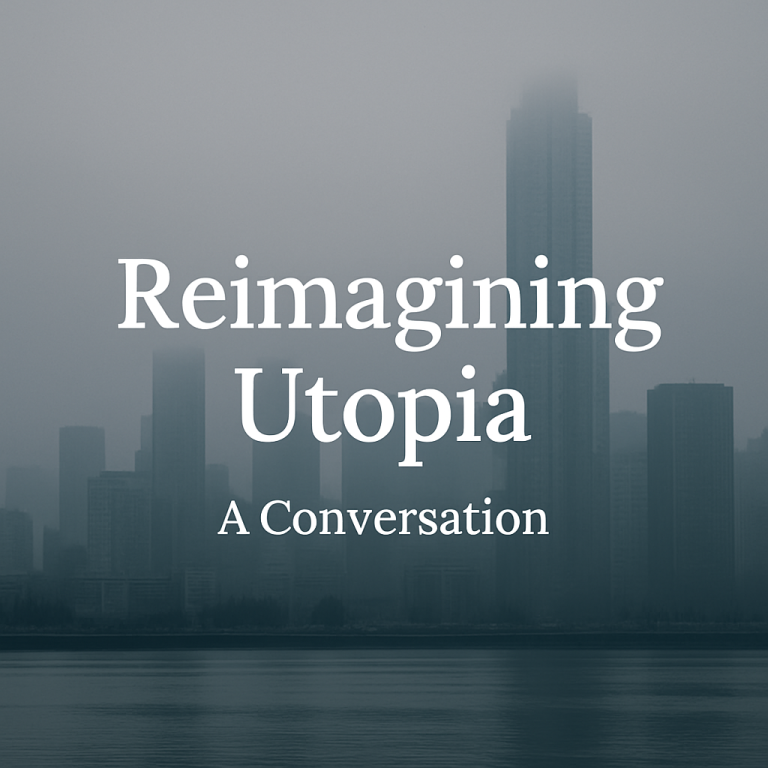How to Break the Algorithm Spell and Escape Social Media’s Grip
You don’t notice the moment the algorithm takes you.
No one ever does— which is why knowing how to break the algorithm spell matters more than you think..
It isn’t a sudden pull — it’s a settling-in.
A slow rearranging of your thoughts so they fit the shape of the feed.
You open it the way you breathe: without thinking.
The scroll becomes background to your day, a hum you stop hearing until silence feels unnatural.
(If you haven’t read When the Feed Thinks for You yet, it’s the perfect lead-in to this piece.)
The social media algorithm doesn’t knock.
It waits until you’ve invited it in.
It learns your pauses, your cravings, the fraction of a second you hesitate on an image.
It answers before you ask, serves you before you know you’re hungry.
At first, it feels harmless — a soft exchange, barely worth noticing.
A little attention here, a little time there.
But the edges blur, and soon you can’t remember what you once reached for before it began placing things in your hands.
“Convenience is the disguise control wears.”
And under that disguise, it rewrites you quietly — seasoning your opinions, tuning your emotions to someone else’s agenda…
“breaking your thoughts into caption-length fragments.“
Until sentences feel too long.
Until whole paragraphs feel indulgent.
We’ve trained ourselves to want the shortest version of everything — the Reel instead of the film, the meme instead of the essay, the emoji instead of the word.
We’ve cut language down to fit our shrinking attention, then called it efficiency.
The damage doesn’t come as a collapse.
It comes as erosion.
So how do you break the spell once it’s taken hold?
Not with a single dramatic exit.
Spells don’t shatter in a single strike — they fray.
One loose thread, then another, until you notice the seams giving way.
You make it harder for the algorithm to find you.
You hide the doors it walks through.
You move the entrance so far out of reach you have to choose to go looking for it.
You leave your phone in another room.
You open a book instead of an app.
You let a street hold your attention longer than a screen.
At first, the silence feels wrong — a missing limb, a phantom itch.
Most people turn back here.
The quiet brings your own thoughts to the surface, and for many, that’s more unsettling than the algorithm’s endless hum.
It’s easier to keep drifting in the current of other people’s voices than to face the unfiltered ones in your own head.
But if you stand in that quiet — just for a moment — it begins to shift.
It starts in fragments:
an unhurried thought,
an observation with no caption attached,
the memory of something you’d forgotten you cared about.
The social media algorithm will try to pull you back.
It will whisper just for a second.
It will send alerts dressed as urgency.
It will remind you how much easier it is to let it decide.
You start answering with a question:
“Did I choose this, or was it chosen for me?“
Over time, the silence feels less like an empty room and more like space you own.
Your thoughts return — slower, quieter, unpolished, but untouched.
They don’t arrive with a headline.
They don’t need an audience.
And for the first time in a long time,
they’re yours.
Coming Next: How to Know If Someone You Love Is Under the Algorithm’s Spell — seeing the grip on yourself is one thing. Watching it take hold of someone you care about is another.








Hey, anyone tried net12? It looks kinda sus, but maybe it’s worth a shot. Just trying to get my fix for the weekend. net12
Alright gamers, gave play.hit 8.club a spin. Honestly, the graphics are pretty slick! Gameplay is smooth too, worth checking out for a few rounds if you’re bored. Head over to play.hit 8.club